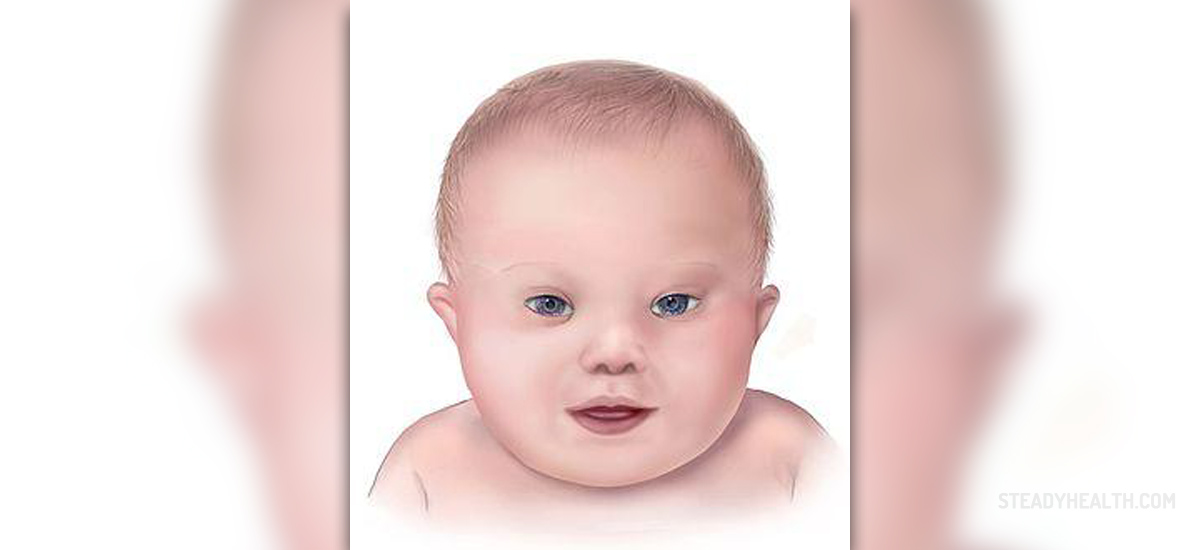
Down syndrome is a genetic disease that occurs in about one per every 733 births. Down syndrome is actually a chromosomal condition that happens when a person has an extra chromosome 21. Normally, people have 46 chromosomes, organized in 23 pairs. When a numerical chromosomal abnormality occurs, a person may get an extra chromosome or have a chromosome less.
In the cases where people have three chromosomes 21 instead of a single pair, doctors are able to diagnose Down syndrome, also known as trisomy 21. This extra chromosome causes many of the associated problems in physical growth and cognitive ability. The disease is more frequent among children of older parents, especially if a mother is older than 35.
Physical characteristics present at birth
Children born with Down disease are usually easy to distinguish from others. This is because each of these patients shares some common physical features with the rest of the affected individuals. For example, individuals with Down syndrome will have abnormally small chin and oblique eye fissures with epicanthic skin folds on the inner corner of the eyes. Their nasal bridge is usually flat and their tongue typically protrudes due to a small oral cavity. The neck of these children is short and the face appears flat and board.
Children are often born with decreased muscle tone, and they are having some excess skin on the back. Another common feature, which is seen in about 45 percent of patients, is a presence of a single crease in the palm of the hand. All the patients with Down syndrome are stunned at growth.
Mental characteristics present with birth
All the individuals suffering from Down syndrome are mentally retarded. In most cases, the disability is mild to moderate, allowing the patients to develop an IQ ranging from 50–70 or 35–50, respectfully. The manifestations of mental retardation are not visible at birth, but these children are born mentally disabled, and their first mental problems will start to appear as a speech or motor skills delay.
Health problems present at birth
About half of all children with Down syndrome are born with some sort of a heart defect. Some of the children may come to life with a congenital hypothyroidism. This condition is defined by thyroid hormone deficiency present at birth. Some of the patients may have congenital gastrointestinal diseases such as Hirschsprung's disease, characterized by the absence of the nerve cells in the part of color, or with an imperforate anus.
- www.cdc.gov/ncbddd/birthdefects/downsyndrome.html
- www.nhs.uk/conditions/downs-syndrome/characteristics/
- Photo courtesy of Centers for Disease Control and Prevention, National Center on Birth Defects and Developmental Disabilities by Wikimedia Commons: commons.wikimedia.org/wiki/File:Down_syndrome_lg.jpg




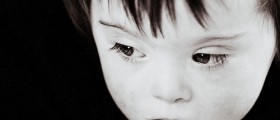


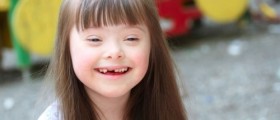



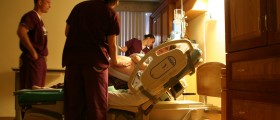



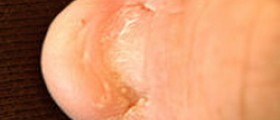

Your thoughts on this
Loading...